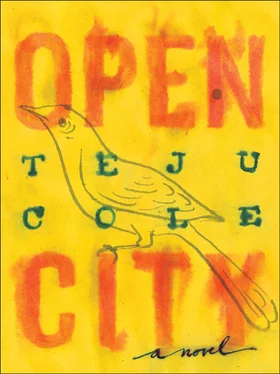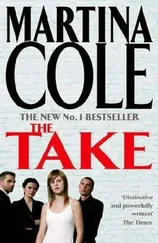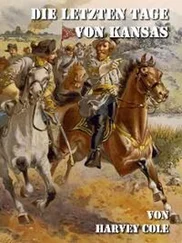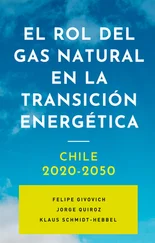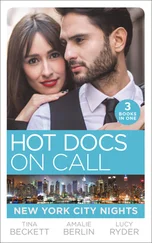I had just finished my beer and paid for it when a man came to sit beside me. You don’t recognize me, he said, raising his eyebrows. I noticed you at the museum, about a week ago, the Folk Art Museum. My face must have remained foggy because he added: I’m a guard there, and that was you I saw, right? I nodded, faint though the memory was. He said, I knew I recognized your face. We shook hands, and he introduced himself as Kenneth. He was dark-skinned, bald, with a broad, smooth forehead, and a carefully trimmed pencil mustache. His upper body was powerful, but his legs were spindly, so that he looked like Nabokov’s Pnin come to life. He was in his late thirties, I guessed. We made small talk, but soon he launched into a monologue, flitting from one subject to another in a Caribbean accent. He was from Barbuda, he said, and was surprised that I’d heard of it.
Most of these Americans don’t know anyplace, other than what’s right in front of their noses, he said. Anyway, I’m waiting for some friends, and isn’t this a nice place? Oh, you haven’t been here before? I shook my head. He asked where I was from, what I did. He spoke fast, chattily. One of my housemates, once, in Colorado, he said, was a Nigerian. He was called Yemi. Yoruba, I think he was, and I’m really interested in African culture anyway. Are you Yoruba? Kenneth was, by now, starting to wear on me, and I began to wish he would go away. I thought of the cabdriver who had driven me home from the Folk Art Museum — hey, I’m African just like you. Kenneth was making a similar claim.
I used to live in Littleton, but I was at university in Denver, studying for my associate’s degree, he said. You know Littleton, right? The massacre happened just after I arrived there. Terrible thing. Same thing happened with New York, I got here in July 2001. Crazy, right? Completely crazy, so I don’t know whether to warn the next city I move to! Anyway, the museum position, you know, it’s all right, something to do for now, it’s nice, but what I really want to do is … Kenneth spoke on, rapid, automatic, but his tawny eyes were immobile. Then it struck me that his eyes were asking a question. A sexual question. I explained to him that I had to meet a friend. I apologized for not having a business card with me, and said something about visiting the museum again soon. I left the restaurant and stepped back out onto South End. It wasn’t far from there to the water, and as I moved toward the waterline, I felt a little sorry for him, and the desperation in his prattle.
This strangest of islands, I thought, as I looked out to the sea, this island that turned in on itself, and from which water had been banished. The shore was a carapace, permeable only at certain selected points. Where in this riverine city could one fully sense a riverbank? Everything was built up, in concrete and stone, and the millions who lived on the tiny interior had scant sense about what flowed around them. The water was a kind of embarrassing secret, the unloved daughter, neglected, while the parks were doted on, fussed over, overused. I stood on the promenade and looked out across the water into the unresponsive night. All was quiet and lights called from the Jersey shore across. A pair of joggers sailed softly toward me, and past me. Along South End, facing the water, there were rows of townhouses, small shops, and a little, round gazebo choked with vines and bushes. Out, ahead of me, in the Hudson, there was just the faintest echo of the old whaling ships, the whales, and the generations of New Yorkers who had come here to the promenade to watch wealth and sorrow flow into the city or simply to see the light play on the water. Each one of those past moments was present now as a trace. From where I stood, the Statue of Liberty was a fluorescent green fleck against the sky, and beyond her sat Ellis Island, the focus of so many myths; but it had been built too late for those early Africans — who weren’t immigrants in any case — and it had been closed too soon to mean anything to the later Africans like Kenneth, or the cabdriver, or me.
Ellis Island was a symbol mostly for European refugees. Blacks, “we blacks,” had known rougher ports of entry: this, I could admit to myself now that my mood was less impatient, was what the cabdriver had meant. This was the acknowledgment he wanted, in his brusque fashion, from every “brother” he met. I walked north, along the promenade, listening to the water breathing. Two old men shuffled toward me in shiny tracksuits, deep in conversation with each other. Why did I feel suddenly that they were visiting from the other side of time? I caught their gaze for a moment, but their eyes signaled nothing other than the usual gap between the old and the young. A little walk north, the promenade broadened, the residential row ended, and there I saw the glass atrium of the World Financial Center, with its assortment of massive indoor plants that made it look like a gigantic aquarium. There was a calm inlet just in front of the building, on which several boats, one of which had a sign for the Manhattan Sailing School, bobbed gently. I went down a short flight of wooden steps, and walked onto the pier and alongside the boats, and beyond them into the section where there was water on both sides. The inlet was to my right, the river to my left, and I faced out to the left, settling my eyes on the black water, the scattered lights of Hoboken and Jersey City, and above them black sky. The soft ululations of the water fell into my ears, and out of those murmurs, M.’s plaintive voice.
How could I be so stupid, Turkish-American wife, Turkish mistress. I always told her I had business in Ankara, which I did, but she didn’t know about my other business; and this other one, I gave her three hundred dollars every month, it was a good arrangement, I think, or I should say I thought. I thought. I didn’t think. One day, she wrote and asked for more — women are crazy, Doctor, even crazier than me — she wanted five hundred. Can you imagine this? Every month, five hundred, and my wife said, A letter from Turkey, let me see who writes my husband. That was the end for me. When I came home she was waiting with the letter in one hand, and a stick in the other. How can I blame her? I was thinking with my, I don’t know, Doctor. And now, everybody at home knows this. I was thinking with my balls. I didn’t think. Everything good I have made bad, I disappoint God.
His eyes brimmed. He had told the story before, and had wept before, but each time it was like never before. He experienced the pain afresh and dramatized it each time. And, as thought leads to thought, standing there looking at the river, I felt an unexpected pang of my own, a sudden urgency and sorrow, but the image of the one I was thinking of flitted past quickly. It had been only a few weeks, but time had begun to dull even that wound. It was getting cold, but I stood awhile longer. How easy it would be, I thought, to slip gently into the water here, and go down to the depths. I knelt, and trailed my hand in the Hudson. It was frigid. Here we all were, ignoring that water, paying as little attention as possible to the pair of black eternities between which our little light intervened. Our debt, though, to that light: what of it? We owe ourselves our lives. This, about which we physicians say so much to our patients, about which so little can reasonably be said, folds back and also asks us questions. I wiped my hand on my jacket, and breathed on my fingers to warm them up.
Two boys, late teens, up on the promenade with their skateboards, were the only people within shouting distance. They were absorbed in their sport. One of them repeatedly made jumps from a low ramp, taking off and landing with loud clacks, while the other raced alongside him on another skateboard with a video camera, held low, almost at ankle level, and with a beam of light from its lamp. A security officer drove past in a motorized cart, and warned the boys against jumps. They stood and listened respectfully, and seemed chastened. But as soon as he drove off, they resumed their jumps.
Читать дальше
